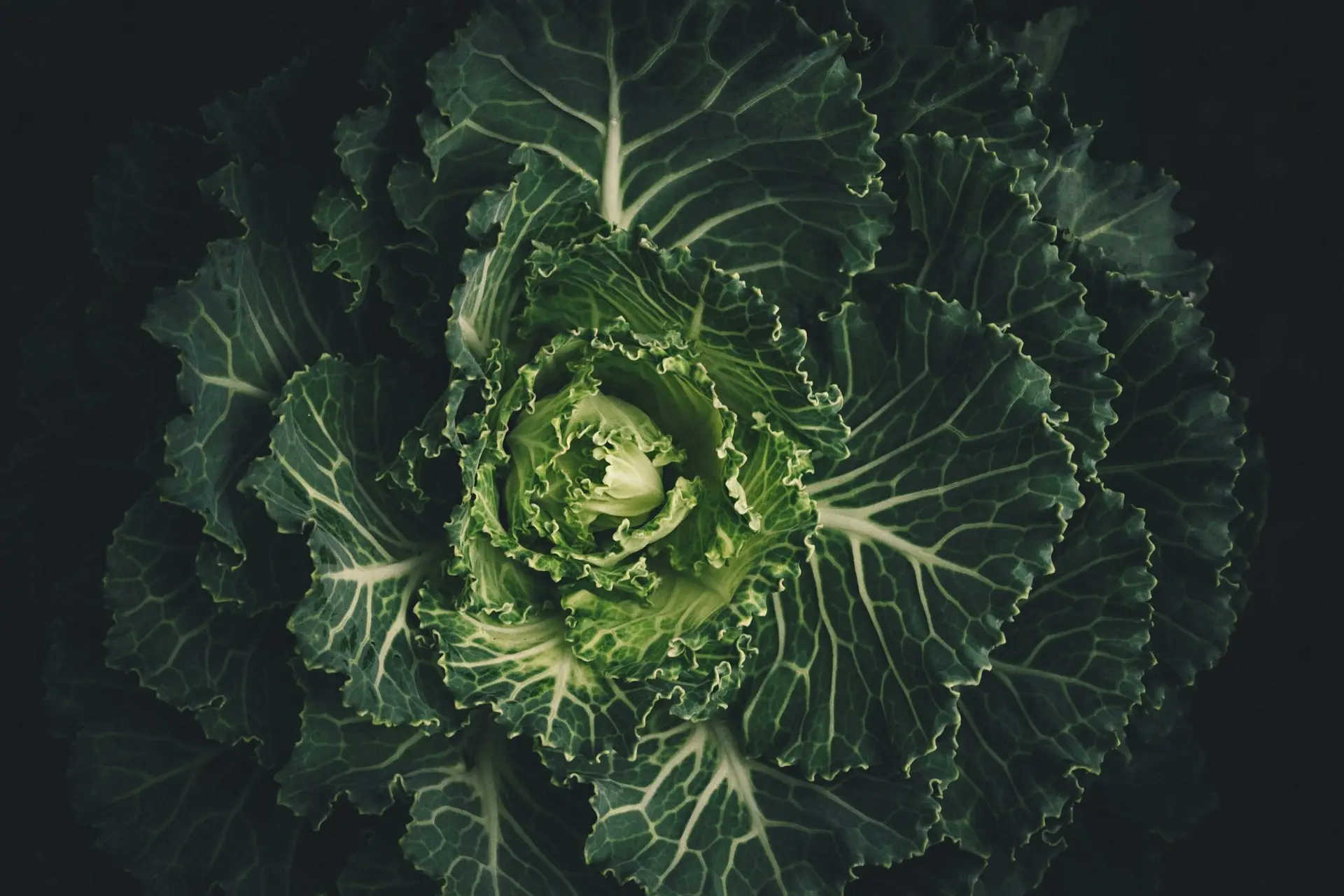
Cabbage - both healthy and cheap
Cabbage and IBS
We are happy that cabbage has become such a popular ingredient in cooking. Cabbage in all its forms has been shown to have effects on gut flora, bowel function, constipation, and it even seems to be able to protect us from certain types of cancer.
Try the Belly Balance app for free
In the Belly Balance app, you’ll find all our recipes, many featuring different types of cabbage. You’ll also find a barcode scanner, a digestive diary, and much more for those with IBS or sensitive stomachs.
Cabbage - both healthy and cheap
Cabbage is the perfect staple in any diet. It can be used as a side dish, the base of a salad, and now even as a snack. The varieties of cabbage in stores are increasing, and nowadays, you can find fresh, crispy cabbage more or less year-round. It’s also possible to grow it yourself. Both kale and black cabbage can grow in a pot on a balcony.
The health benefits of cabbage are numerous. All types of cabbage contain plenty of calcium, iron, fiber, vitamin C, and beta-carotene, a substance that the body converts to vitamin A when needed. These vitamins are important antioxidants that protect the body from free radicals. Cabbage is also rich in vitamin K and folic acid. Vitamin K is essential for blood clotting and bone formation. Folic acid is necessary for protein production and cell division. A deficiency in folic acid is common during pregnancy, and it’s an important nutrient to prevent spina bifida in the fetus.
Cabbage is also:
- Nutrient-dense – yet low in calories.
- Good for the immune system.
- Lowers blood sugar – the pectin in cabbage lowers blood sugar.
- Rich in antioxidants, which protect the body.
- Helps lower bad cholesterol (LDL).
- Rich in glucosinolates, a group of sulfur compounds linked to better health.
- Anti-inflammatory and beneficial for heart health.
- Protective against cancer – the sulfur compounds in cabbage may protect against certain types of cancer.
- Regulates digestion due to its high fiber content.
Cabbage and IBS, is it possible?
- Red cabbage, kale, black cabbage, broccoli, fennel, bok choy/pak choy – All are allowed during the elimination phase. The fibers in broccoli are in the stems, so it’s better to use the florets.
- White cabbage – This is a bit uncertain because there are several varieties. The analyses available are done on a type more similar to our summer cabbage. The variety we call winter cabbage is more compact and white, which suggests that the FODMAP content might be higher. Therefore, it is limited to a maximum of 100 g. Read more about fermented cabbage.
- Brussels sprouts – Blanching them makes them easier on the stomach, so buy frozen or fresh ones that you lightly cook before using.
A low-fiber diet provides less protection against bacteria.
Dietary fiber is an important nutrient source for gut bacteria, and a low-fiber diet is likely to affect inflammatory diseases in the gut, as well as other conditions. This is highlighted by a new study published in the journal Cell Host & Microbe.
It is known that fiber intake is linked to weight, blood sugar, and insulin sensitivity, but researchers at Sahlgrenska Academy have now shown that it also affects the health of the colon.
In the study, researchers provided an extremely low-fiber diet to the test animals. It was found that the mice developed defects in the protective mucous membranes of the colon after just three days, making it easier for bacteria to penetrate. According to the researchers, this could have implications for the development of inflammatory bowel diseases, weight gain, and diabetes—conditions that have been increasing.
In the Western world, the average fiber intake has drastically decreased over the past few decades, which could impact the prevalence of several diseases.
Our best cabbage recipes
So, what’s the best way to prepare cabbage? The great thing is that it can actually be used in many different ways. Shredding white or red cabbage and drizzling it with a dressing makes a perfect side salad that keeps in the fridge for a few days. Cabbage is also ideal for stir-frying or adding to casseroles. Black cabbage and kale are becoming increasingly popular in smoothies, as a base for salads, and as chips for Friday night snacks. Fermented, pickled cabbage, or sauerkraut is also delicious and can be bought ready-made or made at home.
Sofia Antonsson
Reg. Dietitian Belly Balance
Read more about

IBS - What is it?
Bloated , constipated or having a gassy stomach? IBS or Irritable Bowel Syndrome is a functional gastrointestinal disorder, meaning no physical issues can be found in the stomach or intestines; they just don’t function quite as they should.

How the app works
Download the app and become part of our community. We assist you in achieving a calm and happy stomach through treatment and tools available directly in the app.

About FODMAP
By learning which foods upset your stomach, you can make conscious choices and get quick symptom relief. With the low FODMAP diet, you receive structured assistance in understanding which foods your body tolerates better than others. No more guessing and pondering – you get the answer straight away!

